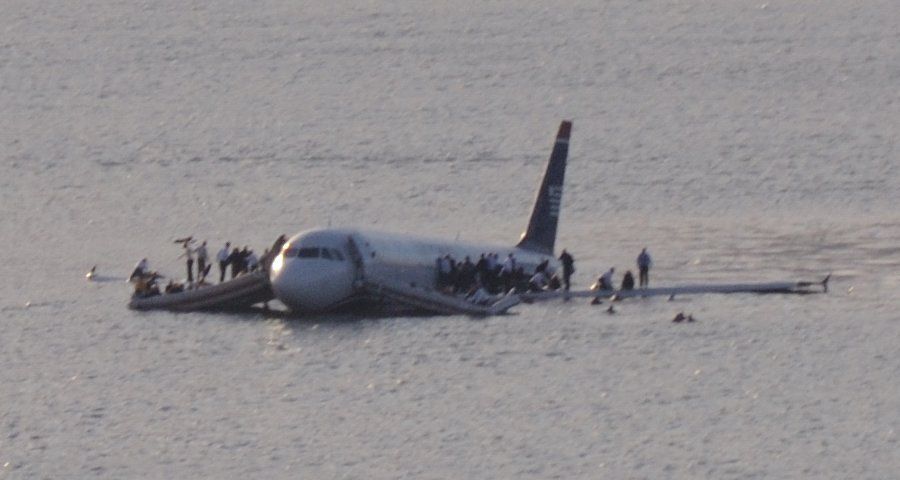
Investigators who probed the ditching of USAir 1549 into the Hudson River in 2009 say the recently released movie about the event portrays them in an inaccurate and unfair light. The movie, Sully, directed by Clint Eastwood, was released over the weekend in U.S. theaters.
For dramatic purposes, Sully portrays the NTSB investigators as prosecutors initially intent on blaming Chesley Sullenberger III and his First Officer, Jeff Skiles, for making the wrong decision after the A320 they were flying had both engines snuffed by birds strikes on departure from LaGuardia. The film initially suggests the crew could have turned back to LaGuardia or landed at nearby Teterboro, New Jersey. It also implies that the left engine was still capable of generating thrust.
“We’re not the KGB. We’re not the Gestapo,” said Robert Benzon, who led the National Transportation Safety Board’s investigation. “We’re the guys with the white hats on.” The NTSB said it was not contacted during the scriptwriting or filming of Sully. Benzon is now retired.
As explained in today’s review of the film by AVweb’s Paul Bertorelli, the script inserts tension into the story by taking events out of context and presenting them in a fictionalized NTSB public hearing. During the hearing, the Sullenberger character, played by Tom Hanks, explains to investigators that they failed to take into account human factors in concluding the airplane could have made the turn back to LaGuardia.
“Until I read the script, I didn’t know the investigative board was trying to paint the picture that he (Sullenberger) had done the wrong thing. They were kind of railroading him into ‘it was his fault,'” Eastwood, who’s a helicopter pilot himself, said in a publicity video made to promote Sully.
According to Hanks, a draft script included the names of the actual NSTB investigators but at Sullenberger’s insistence, these were changed to fictional names. Hanks told Bloomberg News,”These are people who are not prosecutors. They are doing a very important job, and if, for editorial purposes, we want to make it more of a prosecutorial process, it ain’t fair to them. That’s an easy thing to change.”
Some investigators worry that the film’s depiction of the investigative process will make pilots less inclined to cooperate with investigations. TomHaueter, who headed the agency’s major investigations branch at the time of the 1549 probe but who is now a consultant, told The Associated Press that,”There is a very good chance that there is a segment of the population that will take this as proof of government incompetence and it will make things worse.”


































